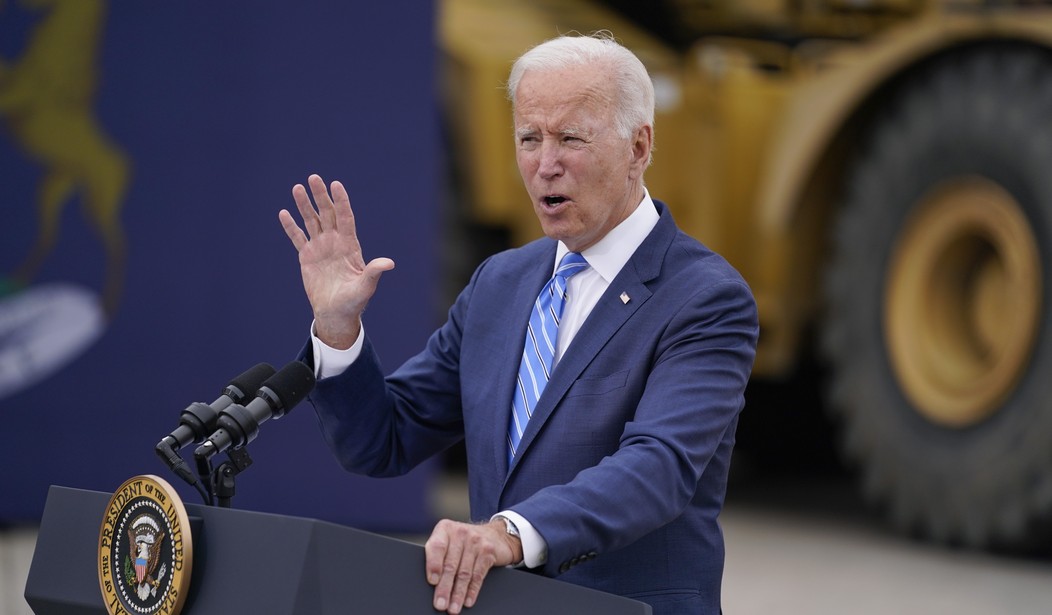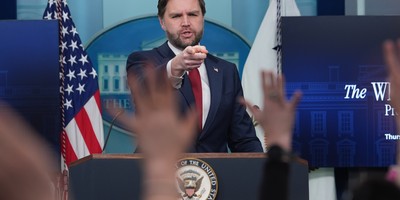President Biden recently announced another attempt to unilaterally and unconstitutionally legislate through his executive position. President Biden has directed the Department of Labor’s Office of Occupational Safety and Health (OSHA) to promulgate rules and implement standards for weekly testing or mandatory vaccines for employers with at least 100 employees. This is in direct conflict with the separation of powers and non-delegation doctrines in the Constitution. The separation of powers and non-delegation doctrines are two-sides of the same coin that restrict abuses of power by any one branch of government — especially the Executive.
Article I of the United States Constitution provides that “[a]ll legislative powers herein granted shall be vested in a Congress.” As creations of Congress, the administrative agencies, including OSHA, can only act pursuant to power explicitly granted by Congress. This requirement applies equally to the Office of the President. Here, President Biden has attempted to act through OSHA, because he cannot act directly.
Congress first created OSHA with the OSH Act of 1970. A review of OSHA’s legislative history shows Congress was primarily concerned with physical injuries in the workplace when it considered this legislation. Congress specifically discussed the impact of workplace injuries on the economy and the need to address these injuries. Specifically, Congress discussed injuries from chemicals and physical objects. Clearly, Congress’s intent was to protect workers from physical injury, not from a virus.
Despite the clarity of the legislative history, Congress delegated broad power to OSHA. An agency can only be delegated power if Congress provides an “intelligible principle” outlining how the agency may utilize its granted powers. Congress did not define what OSHA can do when they act; they just said to act “reasonably.” Further, Congress did not say what OSHA could act on. This type of broad delegation of power, which simply allows an agency to write its own laws, is precisely what the Constitution sought to prevent.
Recommended
The Supreme Court first coined the term “intelligible principle” in 1928. In 2019, Justice Gorsuch clarified that this term was not meant to revolutionize the Court’s interpretation of the Constitution. Instead, the term was just a way to explain what we already knew—Congress can only delegate power to an agency to find facts and fill up details. Not to allow agencies to write their own laws. Yet, this is precisely what OSHA’s statute and intelligible principle attempt to allow them to do. The Supreme Court has defined OSHA’s intelligible principle as, OSHA must act as reasonably necessary and appropriate to remedy a significant risk of material health impairment.
The Supreme Court should find that OSHA’s intelligible principle is unconstitutionally broad, and thus their vaccine mandate is invalid and unconstitutional. Even if OSHA’s intelligible principle were legitimate, by mandating vaccines, OSHA would not be acting within the bounds of their intended power.
Although courts often defer to agencies' expertise when they act within the bounds of their intended power, courts do not, and must never, give any deference to agency action without proper delegation of power. In the legislative history, Congress made it clear that OSHA was meant to address hazards in the workplace. Specifically, Congress noted the hazard must be one that is likely to cause death or serious bodily harm. The Supreme Court confirmed this when they defined OSHA’s intelligible principle. According to Statista, across all age groups, Covid-19’s death rate and hospitalization rate are both well below 1%. Certainly, Covid-19 cannot be likely to cause death or serious bodily injury when the hospitalization rate is below 1%. Not only that, but according to the CDC, the most vulnerable population is those aged 85 and above. The Labor Bureau says that the median age of the U.S. workforce is 42 years old, i.e., not a vulnerable age group.
There has been no other delegation of power to the Executive that would allow President Biden to enforce mandatory vaccination or mandatory testing without violating the non-delegation doctrine. Should the President attempt to defend these actions under his own authority, the action should be struck down. Such blatant attempts to aggrandize legislative power from Congress are not unique. The Supreme Court has previously held that “the President’s power to see that the laws are faithfully executed refutes the idea that he is to be a lawmaker.” Without a proper delegation of legislative power, President Biden is improperly seeking to create new law through his executive power.
Courts should not be complicit in this clearly unconstitutional workaround—they should afford absolutely no deference to OSHA regarding any of their Covid-19 directives, as OSHA has no authority to act in this manner. The vaccine and testing mandate should be promptly overturned upon review by an appropriate federal court.






















Join the conversation as a VIP Member